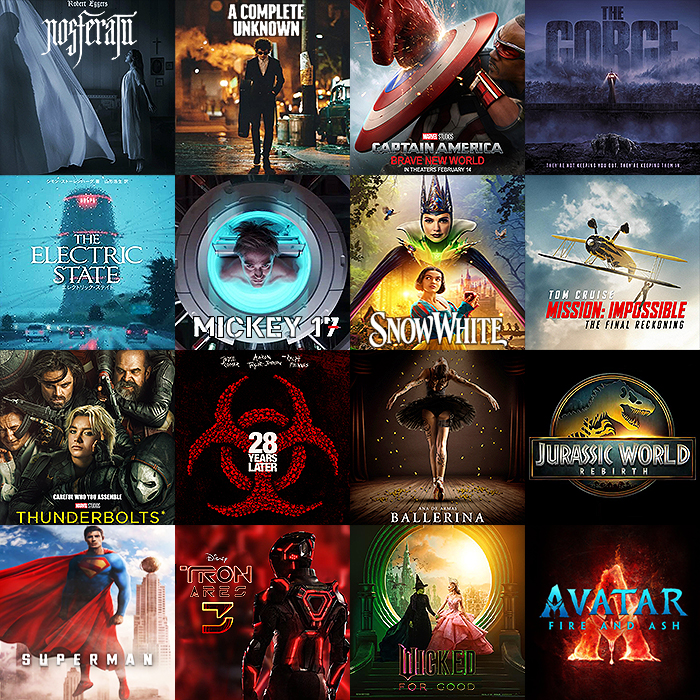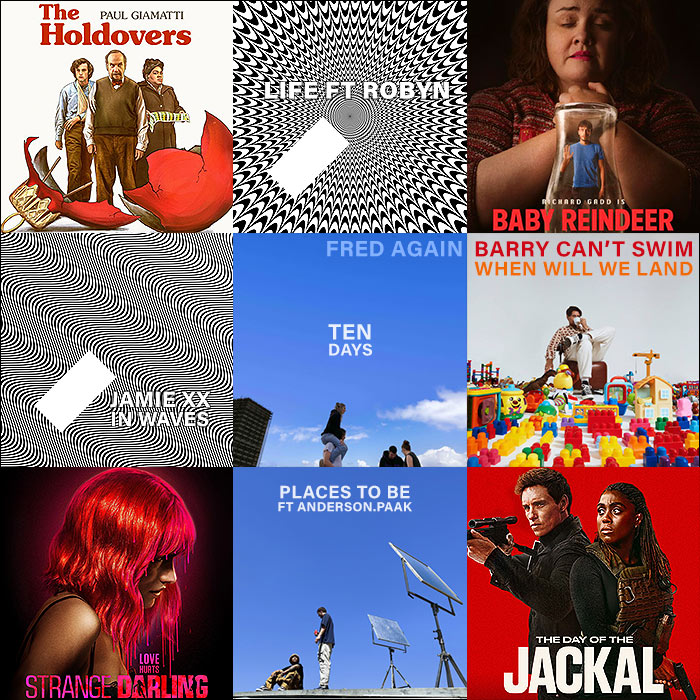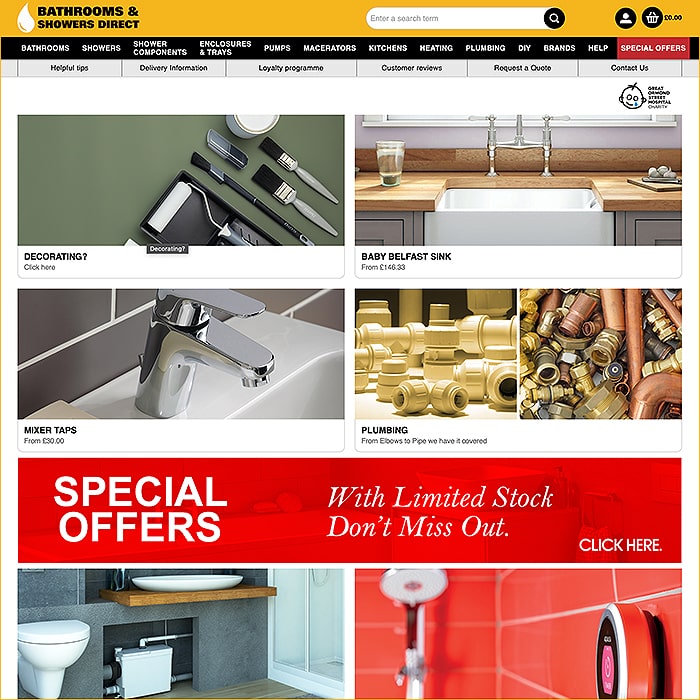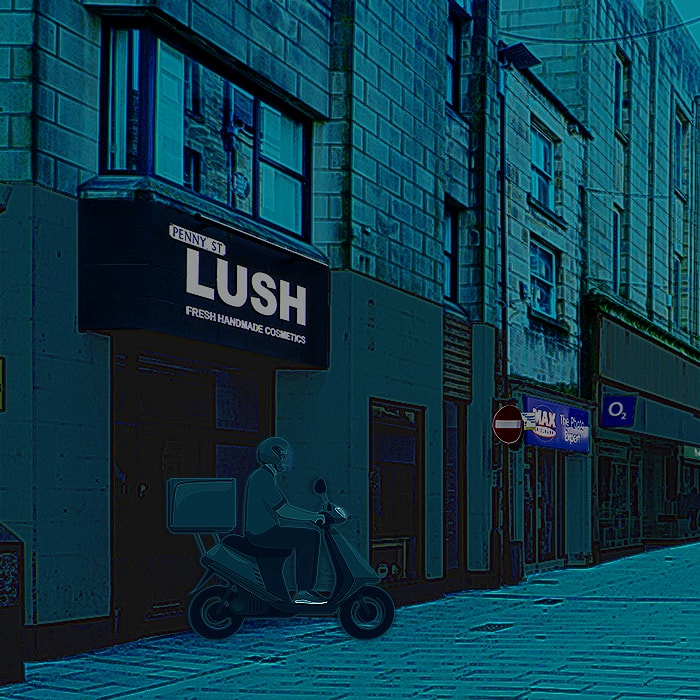The 10 Key Criteria for Best-in-Class Ecommerce

I will start with a confession - I am not quite the uber shopper I used to be. Sure I still buy various items from around the world and do enjoy the occasional foray onto the High Street, it does not yield quite the same degree of satisfaction that it used to. I often do desk-research before I venture into town, only to find the stock in the High Street store quite different to what is on the website, and not available in my particular desired size / colour combination - often just not available at all, either sold out some weeks ago, not arriving for a few weeks, or not arriving at all on these shores!
So after a fruitless day in town, I hit the Internet upon my return home to swoop up all those items that were not available to me locally. Here I often hit different snags - particularly when buying clothes - you find the same garment on different sites looking significantly different in colour and recommended in a variety of different sizes. I totally loath the randomly numbered or lettered approach - like Ted Baker’s Size 1-6 or S, M, L, XL etc - totally ambiguous and random across different retailers and even within the same retailer’s offerings. The only hard and fast rule is where exact inch dimensions are quoted, and you are best off referencing the manufacturer’s site in most cases, but strangely not always! Some brands run typically smaller or larger than the perceived regular universal size - so you have no other option than to try that on at some stage to see how to calibrate your real-world sizes against their arbitrary ones. I have gotten very good at triangulating colour and sizing information across a number of different sites to come up with the most likely media value, a ploy which has mostly worked for me, but far from always.
Why after all these years there is no proper universal standard of fit, with a proper quality stamp to ensure accuracy I have no idea? Thus buying off the web can be a little Russian roulette in terms of exactly what you are getting and when you are getting it, even if!
We read a lot about hackers and fraud these days, and those are genuine and valid concerns. I frequently like using PayPal, but don’t like that they have such a monopoly on that type of purchase. Online Retailers have to overcome a number of barriers to sale - just to engage and secure the attentions of their most likely potential customer. The 10 Key Criteria are all about overcoming those barriers to trade, to make the exercise as painless and carefree for your intended consumers. To date, I’m not sure I can name a single retailer who has got everything on this list fully checked off:
Search
A decent search is the starting point - for if your customers can’t find what they are after, they will never do business with you. You need to be able to accurately recover items from the catalogue, and then allow clever filtering down of the the search results such that exactly the right item can be found.
Recommendations
Amazon does this brilliantly and on several different levels - firstly alternatives against the initial search criteria, then - ’What Other Items Do Customers Buy After Viewing This Item?’ and ’Customers Who Bought This Item Also Bought’. Finally there are also those emails you get a few days after you have browsed a particular category on the site - e.g. ’10 Best-selling Micro-SLR Cameras’ etc...
Details
Presenting the customer with everything they need to make the correct decision - particularly applicable to fashion retailers - proper sizing and garment washing / care instructions and fabric composition and features. Also accurate colour reference, genuine availability information and notice of how quickly you can receive your chosen article by different means.
Quick Checkout
A speedy and efficient checkout is in everyone’s best interests - as few clicks as possible and ideally all the information visible on the same screen simultaneously - so you can quickly process the important values and hit the crucial ’Place Your Order’ button without complications or distractions.
Delivery
All this is for naught if the purchased item does not reach the consumer within the given time-frame. If the consumer pays for an expedited one day delivery and it’s purchased before the relevant cut-off-point, they expect their package tomorrow. It may be required for an urgent event, so it’s no good despatching it the following day and trying to make that qualify as ’expedited’. This has happened several times to me. Amazon of late has been particularly dubious within its ’One-Day Delivery’ offer encompassed by the Amazon Prime Membership.
Packaging
If you want repeat orders, then how the package looks upon arrival is another critical phase. If the customer has spent a lot of money, they expect to receive something wrapped in crepe paper neatly bound with a satin ribbon (or similar). They don’t expect a crushed whatever it is stuffed into a plastic bag, which in turn is stuffed into a bubble-wrap envelope. Net-a-Porter made a lot of its early reputation on the quality of its packaging and reliable delivery.
Returns
Buying online is often unnecessarily more tricky for returns than heading back to the High Street. This is one of those things that Amazon does particularly well in part - a Yodel door-step pick-up with the minimum of effort. The better retailers also already include a return slip in the packaging - which just needs to have relevant options ticked and then be signed off by the customer. The cleverest retailers also use returnable boxes - with additional peal-and-seal strips - so you can open it one way and then immediately re-seal again in case of issues - something which Amazon has definitely not mastered yet.
Options
You have to give customers options - particularly in the area of delivery, often free for 3-5 days, a certain amount for a 24-48 hour delivery, and roughly twice that for expedited / same-day delivery. You also need purchase options - i.e. Card / Paypal etc. And many retailers now also offer payment terms - so you can purchase in instalments, rent / lease or buy outright. It is also useful to offer Guest and Registered User checkouts for those who are concerned about having their details hacked and hijacked.
Extras
I love receiving packages from Wiggle and The Fowndry as they both include small sachets of fruit chews with the order. Extras are the little touches that make the whole retail experience that more enjoyable and memorable for the consumer. It is often the smallest things that have the most impact - particularly towards ensuring repeat purchase and longer-term loyalty.
Service
This really is the speed and manner of response to customer queries and issues - the number of channels you have at your disposal and how easy it is to get to and through those channels. Very few UK companies have a proper Customer Champion / Customer Service Representative - i.e. an obviously promoted public-facing figure who takes on customer service responsibilities and champions customer causes. In the ugly side of many UK businesses, there is no proper Customer Services department, simply a ’Customer Retention Team’ annexed to the main sales team - as at companies like British Telecom!

Did you find this content useful?
Thank you for your input
Thank you for your feedback
Upcoming and Former Events
Affino Innovation Briefing 2024
Webinar - Introduction to Affino's Expert AI Solutions - Session #2
Webinar - Introduction to Affino's Expert AI Solutions - Session #1
PPA Independent Publisher Conference and Awards 2023
Meetings:
Google Meet and Zoom
Venue:
Soho House, Soho Works +
Registered Office:
55 Bathurst Mews
London, UK
W2 2SB
© Affino 2024






















